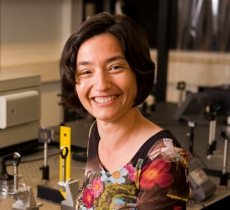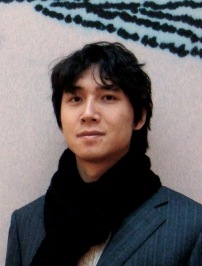Three ERC Starting Grants awarded
The European Research Council (ERC) has awarded ERC Starting Grants to three researchers at the Groningen Faculty of Science and Engineering (formerly known as the Faculty of Mathematics and Natural Sciences): Prof. Maria Antonietta Loi, Dr Ming Cao, and Dr Meike Stöhr. They will each receive EUR 1.5 million over a period of five years. The ERC Starting Grant is a prestigious European grant for individual researchers conducting innovative research. The grant enables them to develop research programmes and set up a research team.
Last year, seven researchers at the faculty received an ERC Starting Grant, and in October 2011 an ERC Advanced Grant was awarded to Thijs van der Hulst, professor of extragalactic radio astronomy.

Prof. Maria Antonietta Loi (Zernike Institute for Advanced Materials, Photophysics and Opto-electronics) has been awarded an ERC Starting Grant for her research project Hybrid solution processable materials for opto-electronic devices (Hy-SPOD). Semiconducting nanocrystals are confined systems and therefore not usually good building blocks for electrical devices. The solution proposed by the Hy-SPOD project, to turn them into efficient components for optoelectronics devices, is to build a functional interface between nanocrystals using organic molecules. This will allow charge carriers to be extracted from these confined systems by means of different physical phenomena, including multiple exciton generation.
The proposal thus aims to carry out fundamental research that will be an important step towards making solar cells an economically viable alternative source of energy.

Dr Ming Cao (Institute for Technology, Engineering & Management, Discrete Technology and Production Automation) will receive an ERC grant for his research project Control of spatially distributed complex multi-agent networks, in which he studies how to design novel strategies and algorithms to control the collective behaviour of large numbers of agents coupled together through local interactions. He applies systems and control theory to model and analyze such complex networks, and uses robotic teams as case studies to implement and validate theoretical results.
The project will enrich multidisciplinary research at the interface of systems theory, graph theory and complex network theory, and will also promote the application of autonomous robotic teams.
Dr Meike Stöhr (Zernike Institute for Advanced Materials, Surfaces and Thin films) will receive an ERC grant for her research project Tuning electronic surface properties by molecular patterning in which the following questions will be explored: Is it possible to artificially adjust the electronic surface properties of a material? Can we thereby gain access to material characteristics like conductivity, reflectivity and surface catalysis properties? The aim is to introduce a concept for tuning the surface properties of metallic substrates and graphene and to study the underlying mechanisms leading to the modified properties.
These findings will be relevant for developing new materials to be used e.g. in nanoelectronic and electronic devices or sensors.
More news
-
29 January 2026
Microplastic research - media hype or real danger?
-
27 January 2026
ERC Proof of Concept grant for Maria Loi
